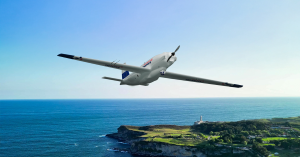There is an urgent need for greater innovation, investment, and cooperation to enhance Europe’s defense capabilities in response to today’s evolving security challenges.
The message from the Latitude59 event “Thinking in Billions” was that the European Union and the West are not learning the lessons of war quickly enough. It was also emphasized that accelerating innovation in the defence industry is critical today, but for this to happen, regulations must change, cooperation between the defence forces and the private sector must increase, and private capital must also step out of the role of bystander.
Estonian and international experts spoke at the Latitude59 event about the development of both defence and offensive technologies, and focused on practical steps to strengthen Europe’s defence capabilities.
According to Minister of Economic Affairs and IT, Erkki Keldo, the war in Ukraine has shown that the world needs smart, effective solutions much faster than before.
“Innovation that used to happen in ten-year cycles must now happen in ten weeks. In dual-use technologies, the focus has shifted from defence to offence. Ethical concerns prevent banks from financing such technologies. That’s why we launched a defence fund earlier this year — to help defence tech companies overcome market failures that hinder capital access and innovation. Fast innovation is also supported by the government’s defence industry policy and its value proposition, which brings together all the resources Estonia can offer to companies in this sector.”
Former Director of Operations for the US Central Intelligence Agency (CIA) James Acuna pointed out in his speech that the European Union and the West are not learning the lessons of war quickly enough. “The European Union and the west continue to be slow to adopt the necessary and painful lessons learned from modern warfare, especially in Ukraine. Despite recent announcements of increased funding, the regulatory framework and the mindset in Europe continue to trail the actual realities of modern war,” he said.
The experts acknowledged that technological and geopolitical pressure is currently greatest on NATO’s eastern flank, and stressed that promoting defense innovation and the rapid adoption of new solutions is critical for the security of the Baltic States.
NATO DIANA Regional Director Kadri Tammai emphasized that the willingness of companies to contribute to the defense industry should not be underestimated or left untapped.
Nicholas Nelson, a venture capital partner at Superangel, a venture capital fund focused on defence and dual-use technologies, said that investment in defence technologies is still in its infancy. “Across Europe, we’re witnessing the early stages of a defense technology venture capital ecosystem taking shape. Europe now has the defense spending, research, and talent capabilities to create a flourishing environment that is capable of developing and deploying critical new defense capabilities to secure itself. With that said, the time for being defense-curious or dual-use washing is over. Europe needs private capital to get off the sidelines and back defense-first companies.”
The event of Latitude59 “Thinking in Billions”, was organised in cooperation with the Ministry of Economic Affairs and Communications. The event brought together defence industry experts, technology entrepreneurs and policymakers in Tallinn.








